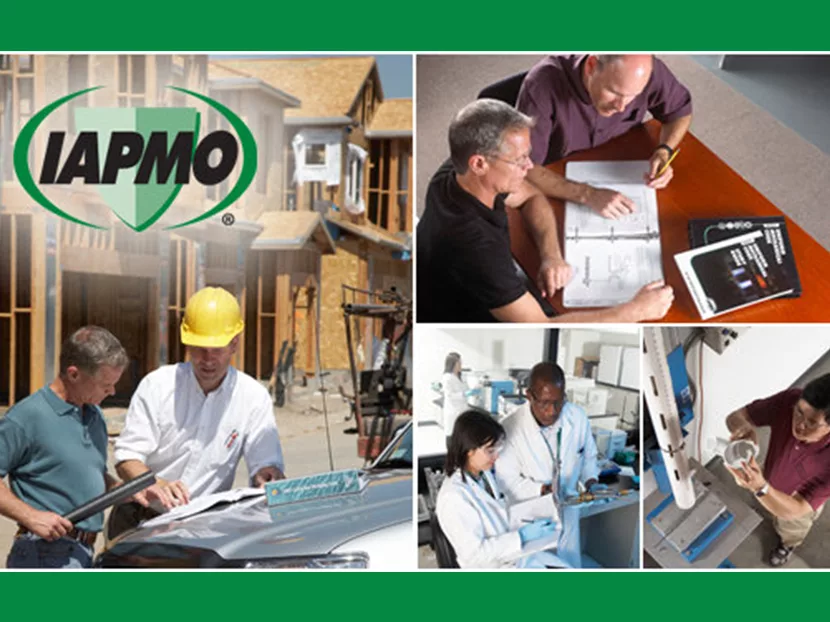The International Association of Plumbing and Mechanical Officials (IAPMO) is seeking volunteers with technical background in hydronic systems and specific knowledge of heat transfer fluid treatment — such as jurisdictional authorities, testing lab and educational facility representatives, as well as HVAC experts — to participate on the Hydronic Standards Committee for the development of IAPMO H1001.1 as an American National Standard. The scope of the IAPMO H1001.1 standard is to establish and maintain hydronic system heat transfer fluid quality over the life of the system.
Hydronic heating and cooling systems function by transferring heating or cooling energy from the heat or cold source to emitters of various types at the load. In order for a hydronic system to operate at the highest level of efficiency, and in order to prevent damage to system components, including but not limited to pumps, valves, tanks, boilers, and chillers, the quality of the heat or cold transfer fluid (water, or water/antifreeze mix) must be established at system startup, and maintained over the life of the system. Hydronic heating and cooling systems can reach some of the highest efficiencies of all space conditioning systems available today, however some hydronic systems in the United States fail to reach or maintain their highest potential efficiencies due to poor water quality establishment and maintenance practices.
The Hydronic Standard Committee members will be responsible for the development of new American National Standards relating to hydronic systems. The committee will also be responsible for the content and processing of public review comments. The committee will operate in accordance with IAPMO's accredited procedures for standards development: IAPMO PP-1 (Policies and Procedures for Consensus Development of American National Standards).
Founded in 1926, IAPMO seeks to be a worldwide leader in the plumbing and mechanical industry through the protection of health and safety. IAPMO develops industry standards with a focus on plumbing products, solar heating systems and components, mechanical products (including heating, ventilation, cooling and refrigeration system products) and products used in the recreational vehicle and manufactured housing industries.
For more than 30 years, IAPMO has developed American National Standards, initially as the secretariat for the ANSI Z124 Technical Committee, and since 2005 as an ANSI-accredited standards development organization. On May 10, 2018, IAPMO received accreditation through the Standards Council of Canada (SCC) for development of National Standards of Canada, thus accepting the responsibility for development of CAN/IAPMO-designated standards.
Anyone interested in serving on the Hydronic Standards Committee can complete the application online at the Standards Development web page. The deadline to submit an application is May 8. For specific questions, contact Les Nelson at 909-218-8112 or by email at [email protected].





